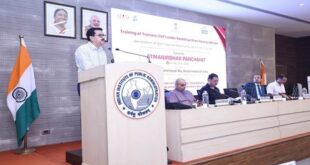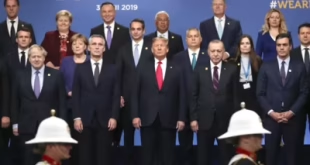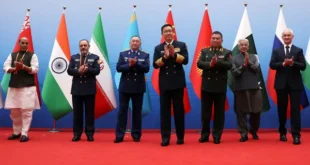- Recently, amendments to the Motion of Thanks to the President’s Address were proposed (However, not passed).
- The amendment proposal mentioned the government’s alleged use of Pegasus spyware and its handling of the Covid-19 pandemic.
- Article 87 provides for the special address by the President.
- The article provides that at the commencement of the first session after each general election to the House of the People and at the commencement of the first session of each year, the President shall address both Houses of Parliament assembled together and inform Parliament of the causes of its summons.
- Such an Address is called ‘special address’, and it is also an annual feature.
- This Address has to be to both Houses of Parliament assembled together.
- The President’s Address is the statement of policy of the Government and, as such, is drafted by the Government.
- The Address contains a review of various activities and achievements of the Government during the previous year and sets out the policies, projects and programmes which the Government of the day wishes to pursue with regard to the important national and international issues.
- The Address also indicates, in broad terms, items of legislative business which are proposed to be brought during the sessions to be held in that year.
- The address of the president, which corresponds to the ‘speech from the Throne in Britain’, is discussed in both the Houses of Parliament on a motion called the ‘Motion of Thanks’.
- If any of the amendments are put forward and accepted then the Motion of Thanks is adopted in the amended form.
- Amendments may refer to matters contained in the Address as well as to matters which, in the opinion of the member, the Address has failed to mention.
- At the end of the discussion, the motion is put to vote.
The Motion of Thanks must be passed in the House. Otherwise, it amounts to the defeat of the government. It is one of the ways through which the Lok Sabha can also express a lack of confidence in the government.
The other ways are:
- Rejection of a money bill.
- Passing a censure motion or an adjournment motion.
- The defeat of the government on a vital issue.
- Passing a cut motion.
SOURCE: THE HINDU,THE ECONOMIC TIMES,MINT
 Chinmaya IAS Academy – Current Affairs Chinmaya IAS Academy – Current Affairs
Chinmaya IAS Academy – Current Affairs Chinmaya IAS Academy – Current Affairs



